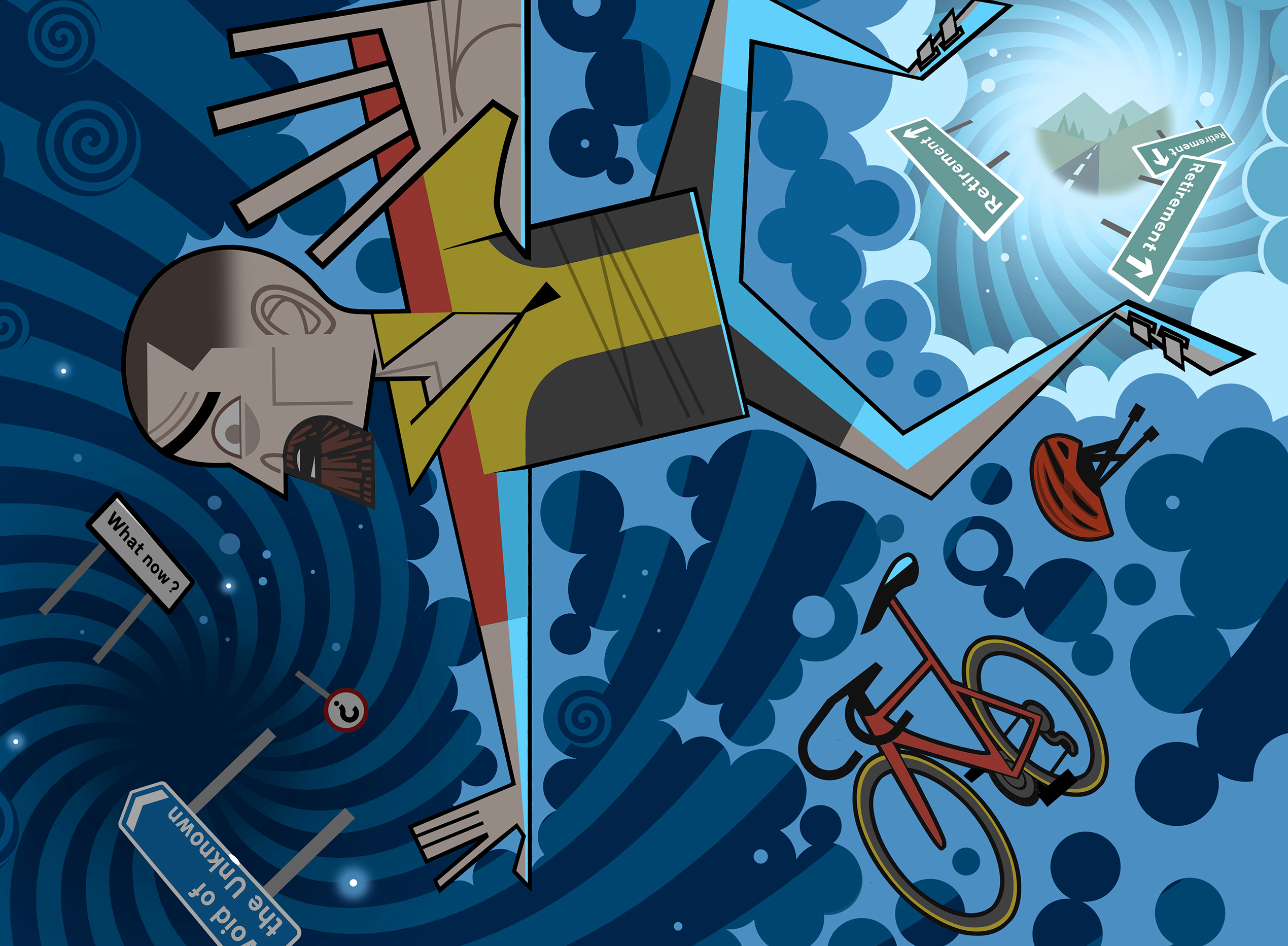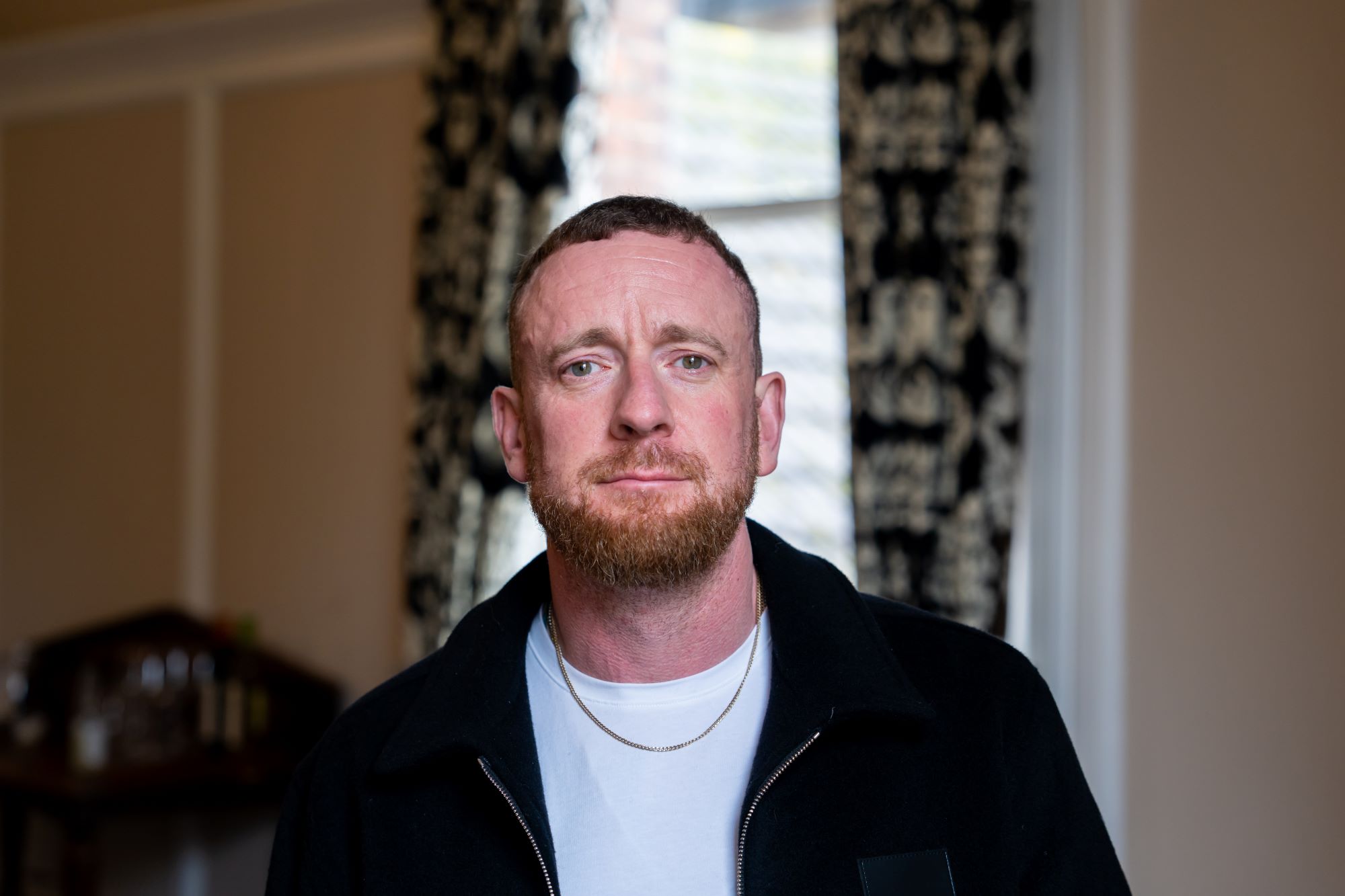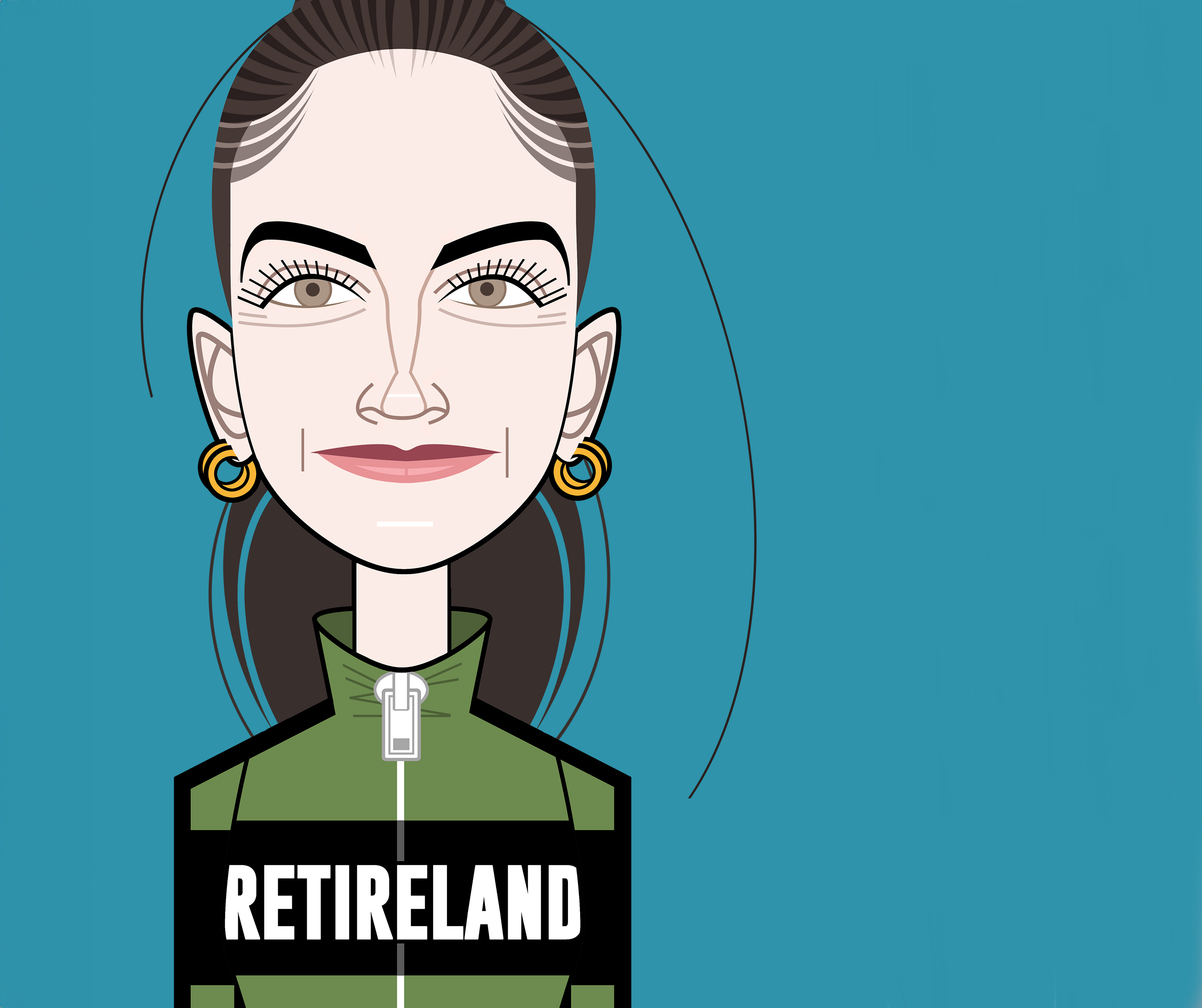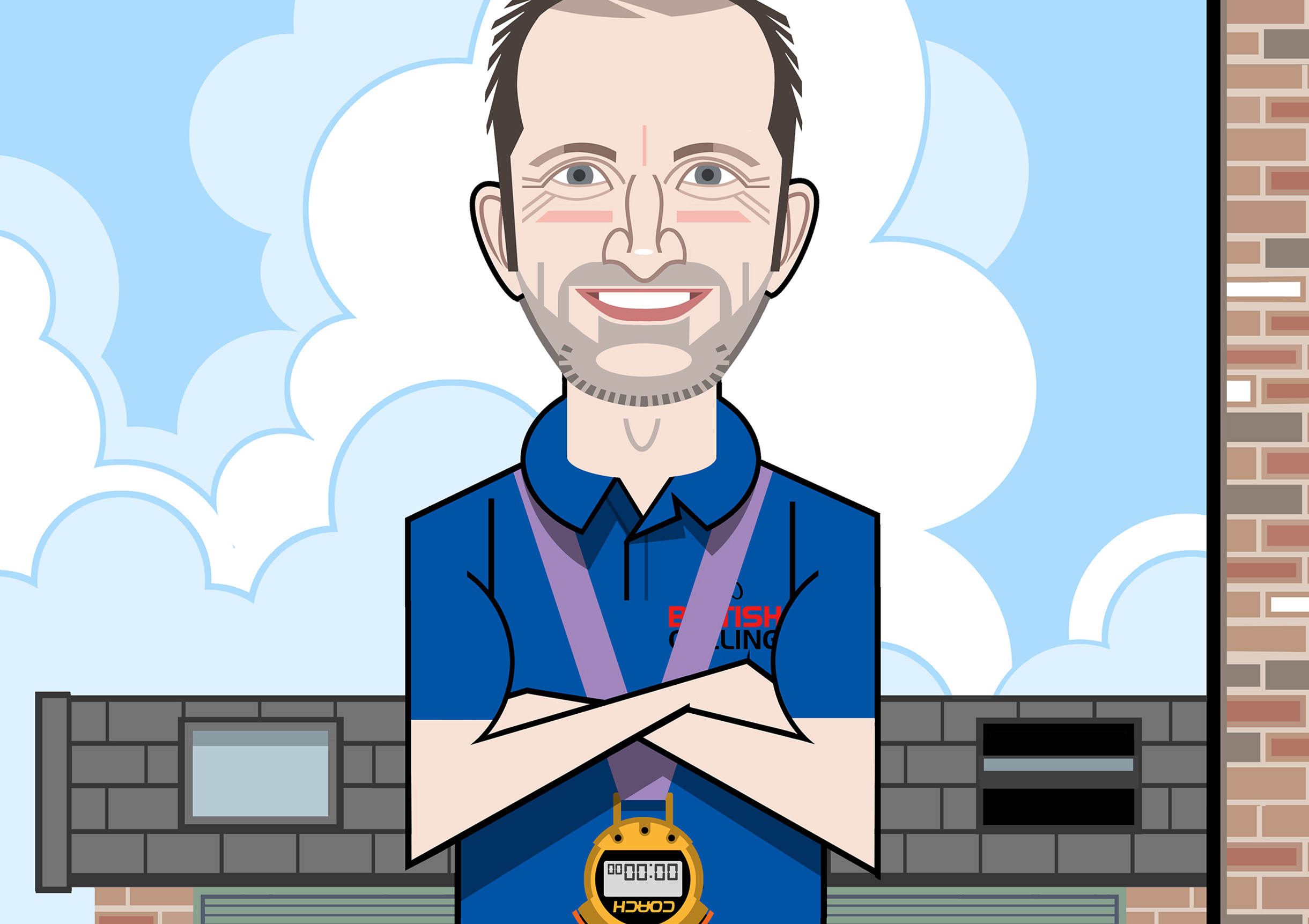What’s the impression of retirement on a rider who spent their profession racing on the highest degree? I requested Sir Jason Kenny, Britain’s most adorned Olympian simply that. “You end up attempting to determine your price and place on this planet,” he says. “I at all times judged myself on my efficiency. If the stopwatch stated I used to be good, then that is what I used to be. When that is taken away, it’s important to discover a new means of seeing your self.”
It isn’t simply Olympians who, after years of getting a transparent motive to rise up within the morning, discover themselves dejectedly hitting the snooze button. “Every time somebody’s sense of id, confidence and private energy depends on their success in a sport, the transition away from it may be powerful,” says sports activities psychologist Peter Hudson.
“Even at an beginner degree, the hunt for health and PBs and the workforce camaraderie can grow to be a significant a part of one’s waking hours. Retiring from all that may be very difficult.” Kenny compares his expertise of quitting biking to that of a young person heading off to school. “At 17 or 18, these youngsters depart residence and take a look at to determine their place on this planet.
However in sport I might by no means had to try this. My place on this planet had been dictated, from an early age, by my place on the squad and my ending efficiency. I did not begin understanding my place on this planet [beyond cycling] till I used to be 33.”
Kenny’s phrases could assist others from that 2012 Olympics golden technology, akin to Geraint Thomas, who is because of retire on the finish of this yr. “There’s an preliminary concern once you give up,” provides Kenny. “Even in the event you’re transferring to an important job, it is a huge life resolution as your complete world’s been primarily based round driving a motorbike.”
He explains that, whereas his stepping away from competitors has been comparatively easy, having taken on a dash coach function with British Biking, a few of his friends have struggled to adapt to life after professional biking.
Traumatic transition Psychologist Hudson outlines why the change in way of life could be tough. “The best way that the professional peloton works today – the sponsorship, variety of races and degree that riders need to carry out at – has made it a way more demanding sport.
The most recent race content material, interviews, options, opinions and professional shopping for guides, direct to your inbox!
When all of a sudden that involves an finish, it is like having the rug pulled from underneath your ft. You’ve all this unstructured time and the adjustment to that may be very, very tough.” That problem is mirrored within the variety of former athletes affected by psychological well being points since quitting their chosen sport.
A 2023 research, printed within the journal Advances in Psychiatry and Behavioural Well being, discovered that as much as 20% of athletes expertise nervousness, melancholy and even post-traumatic stress dysfunction after leaving aggressive sport.

(Picture credit score: David Lyttleton)
“The sudden lack of routine and id so intently related to their sport is one factor. Cash, or the dearth of it, could make retirement from elite biking particularly powerful,” provides Hudson. Regardless of his unimaginable achievements within the saddle, Bradley Wiggins has famously struggled with that misplaced sense of id and goal, in addition to monetary issues, after leaving the game.
He not too long ago instructed the Telegraph: “Inside three years of retiring in 2016, I used to be a drug addict.” Wiggins’s plight shouldn’t be as uncommon as you may assume. “Analysis means that as much as 50% {of professional} cyclists are in monetary misery or face chapter inside 5 years of retirement,” says Jamie Anderson, a professor of management and technique who mentors former professional riders.
“It is powerful, and plenty of cyclists could not have the monetary literacy essential to handle their earnings correctly. A scarcity of steering or mentorship throughout their careers compounds the issue.” Anderson, who resides in Belgium, believes {that a} rider’s household background, and what he calls the “bubble of sanity” surrounding them, can play a component in how they fare after they give up.
“I see a number of the younger riders right here [in Belgium], from working-class backgrounds, who’re noticed at 14 and from that time on they’re by no means inspired to consider life after biking.

(Picture credit score: Getty Photos)
Their households do not at all times have the capabilities or the foresight to assist with monetary planning, both.” Anderson believes that groups ought to present extra monetary and academic assist, and that former execs ought to be inspired to grow to be mentors.
For some riders, the choice to give up is taken out of their fingers. “As a rider, you’re feeling it coming,” explains 38-year-old Belgian Ben Hermans, who introduced his retirement in January after failing to safe a brand new contract with Cofidis. “As a result of I nonetheless cherished to race my bike, I used to be at all times hoping to proceed.”
“Nevertheless it was the primary time in my 16-year profession that I used to be able to proceed – and in addition able to cease.” Hermans believes his performances in the summertime of 2024 had been adequate to advantage a brand new contract. “However if you’re attending to 38 years previous and your workforce shouldn’t be renewing your contract, you’re in a really tough state of affairs.” Responsibility of care?
The place a rider has had larger management over their resolution to give up, the transition is usually smoother, as Kenny’s transfer from racing to teaching confirms. Athletes pressured to retire by way of harm have larger charges of tension and melancholy when in comparison with the overall inhabitants.
“As a result of I nonetheless cherished to race my bike, I used to be at all times hoping to proceed.”
Ben Hermans
Plenty of ex-pros imagine that biking’s directors have an obligation to make sure riders are higher ready for a life after competitors however aren’t dealing with as much as that duty. Former Katusha-Alpecin professional Marcel Kittel is amongst those that have spoken out about the necessity to present a smoother transition into retirement for elite riders. Former Irish highway race champion Imogen Cotter give up biking in April 2024 owing to the lingering psychological impression of a near-fatal collision with a van whereas coaching in Spain in 2022. She returned to the peloton after the crash, however struggled to rediscover her championship- successful type of 2021.
“I used to be hitting numbers higher than my pre-crash ranges,” says the 31-year-old. “In some ways, it was the comeback I had solely dreamed of – however racing had misplaced its significance to me. I might be at races the place folks would stress over tiny particulars, and all I might assume was, ‘We might all die – why does this even matter?”
What does Cotter assume makes quitting biking so tough for a lot of riders? “Lots of cyclists connect a number of their id to the game,” she says. “Quitting is a very scary leap to take. At some skilled outfits, they’ve a efficiency workforce round you to information you with selections like this.
In the direction of the top of my time with [Fenix Deceuninck] there was no efficiency workforce advising me as such; I used to be simply doing all the things alone. I used to be left to make the leap with no actual recommendation as to how I ought to do it.” Cotter is grateful that, as a relative latecomer to the game, having began at 24, she was higher outfitted for all times post-cycling.
“My id wasn’t solely wrapped up within the sport – I might additionally gone to school, labored full-time and lived exterior of biking earlier than,” she explains. “That stated, I used to have a look at retired cyclists and picture that it should be a bit depressing having nothing to work in direction of. However when it got here to giving it up, I had no regrets.
I gained the Nationwide Championships, and fought my means again after the crash – I am pleased with that. It simply did not match my life anymore.” As Kenny factors out, whereas some organisations, together with British Biking, have assist in place for cyclists trying to transfer on, a lot of the emphasis is on the rider to search out their ft independently.
“We’ve a type of efficiency way of life assist that hyperlinks riders to varied firms and universities after they need to get into different roles,” says Kenny, “nevertheless it tends to be led by the rider. I believe it ought to be somewhat bit extra structured – and obligatory for growth cyclists, so that they are extra ready to give up when the time comes.” Amateurs not immune Struggling to regulate to life after aggressive biking is not solely an issue for professional riders.
“Amateurs can discover themselves misplaced in the event that they step away or are pressured away from the construction, the coaching classes and the unofficial assist community of the biking group,” Hudson outlines the psychological hurdles. One rider who discovered himself in precisely this example is 47-year-old American Josh Ross. “Stepping away from biking did impression my psychological well being,” he explains. “My social circle had grow to be the biking group. Not solely the native races but additionally on-line, from Strava to following riders on social media.”

(Picture credit score: David Lyttleton)
The previous beginner racer from North Dakota, USA, was prescribed biking by his physician in 2018 as a way of staying match with out placing an excessive amount of impression on his injured knees. “After about two weeks, I used to be hooked. After three months of driving, I might purchased a coach and adopted a programme from Wahoo. By early Might – only a few months after taking it up – I did my first actual race.”
Ross was simply discovering the highs of aggressive highway and gravel biking when Covid-19 hit. “I used the time to enhance my diet, downloaded all of the apps, tuned into podcasts and purchased extra bikes, together with a brand new highway machine with aero bars. All the pieces was about driving sooner, and when the restrictions have been lifted, I used to be exhibiting as much as all of the native races within the five-state space.”
Simply as Ross was changing into extra profitable in his newfound ardour, the flame started to flicker. “Race charges began to extend dramatically to cowl insurance coverage and prize cash, and bike elements jumped in worth.
I realised most of my discretionary spending was going towards biking. Even our holidays have been centred round races.” Ross’s biking compulsion was affecting his well being too. “My tooth started to kind cavities, thanks in no small half to the carb options I might drink on lengthy rides.
“I have to discover a passion that helps scratch my aggressive itch”
Josh Ross
And I used to be having again issues from spending hours in an aero place.” His tall, 6ft 4in body meant his weight was larger than he desired, even when match and lean.
“I might ‘peak’ for a race and place excessive, however really feel drained and unhealthy off the bike.” The catalyst for Ross got here when he began a brand new enterprise enterprise. “I used to be coaching much less usually. I finished hitting PBs, my motivation was crushed, the burden crept again on.
After I confirmed as much as an area experience, one other rider actually poked me within the intestine and requested, ‘What’s that?” Finally Ross determined to give up altogether – and now, regardless of the ribbing, misses his biking community.
“The social interplay both ceased or, within the case of on-line, did not make sense to continue-there was no motive to observe and chat in regards to the newest analysis or marginal positive factors.” The calls for of Ross’s rising enterprise prevents him from dwelling on his former life as a aggressive bike owner. “I have to discover a passion that helps scratch my aggressive itch,” he says. “It simply must be extra versatile than the 12-week coaching plans and long-distance journey for my A races.”
Tips on how to give up: A psychologists recommendation
Elisabetta Borgia is a sports activities psychologist who works with Lidl-Trek’s males’s and ladies’s groups. That is her recommendation on giving up racing… Some retired riders really feel an instantaneous sense of reduction and pleasure, usually describing the transition as a honeymoon section. They take pleasure in freedoms they beforehand did not have, akin to consuming what they need or skipping coaching.
Others, nonetheless, realise solely after retiring how lucky they have been of their skilled careers, with privileges like sponsored journey and monetary stability. Many select to remain within the sport in some capability, whether or not as a coach, DS or analyst, however others desire to discover totally new profession paths.
There isn’t a proper or incorrect alternative – what issues is that every rider finds a path that fits them personally and professionally. Borgia’s prime ideas for a seamless retirement: Put together for the id shift: Biking is not only a job; it is a lifestyle. With out the construction of coaching and racing, many riders battle with self-perception. Begin exploring who you’re past the game earlier than you retire. Plan your subsequent steps:
Do not wait till your last season to consider what’s subsequent. Whether or not it is teaching, sports activities directing, or a wholly new profession, having a roadmap will make the transition smoother. Construct a assist community: The lack of workforce camaraderie could be powerful. Keep linked with former riders, search mentorship or discuss to a sports activities psychologist. Develop new routines and targets: Create a every day routine, set new health or skilled targets, and maintain pushing your self in new methods.


